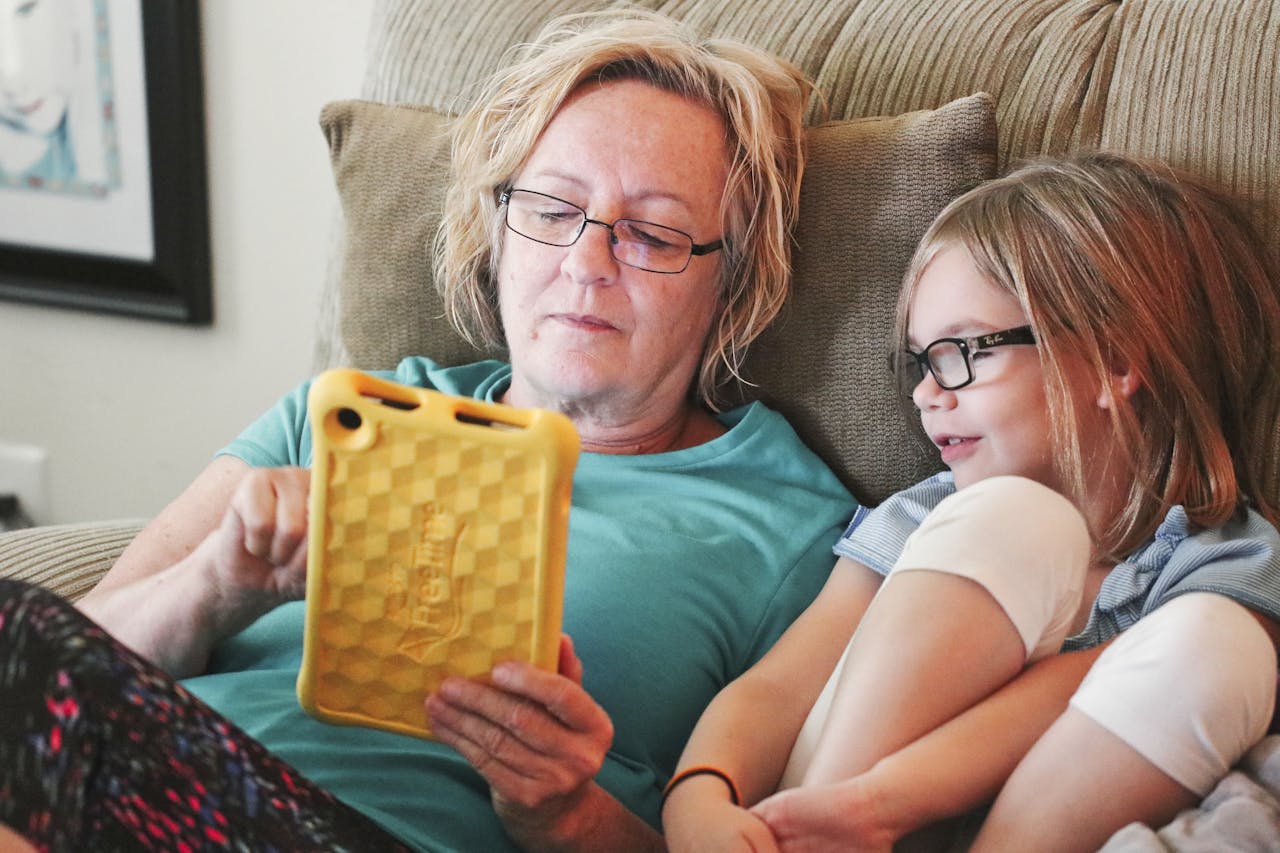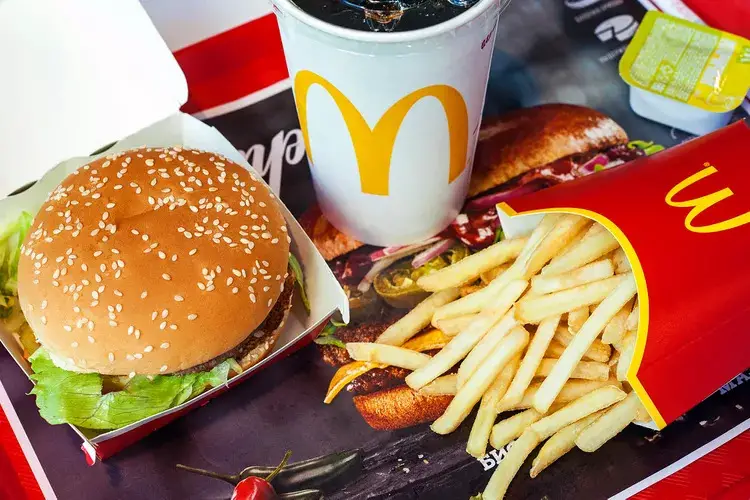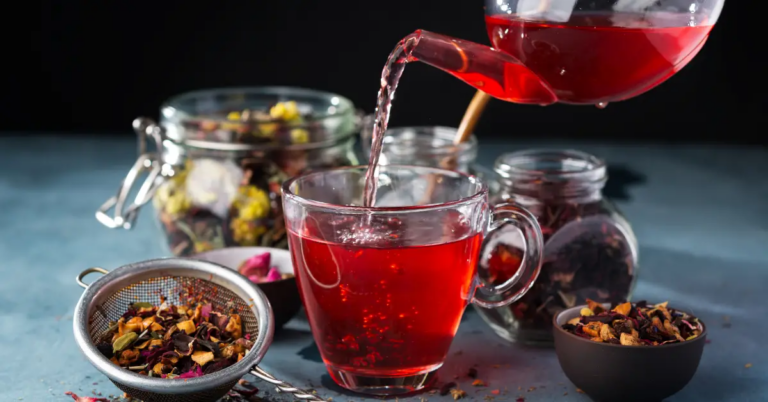When it comes to family dynamics, maternal grandmothers hold a special place in a child’s life. Cultural beliefs and scientific studies suggest that maternal grandmothers have a unique bond with their grandchildren, often influencing their upbringing in profound ways.
But why do maternal grandmothers seem to have an advantage over paternal grandmothers? Is it just an old wives’ tale, or is there a deeper, more intrinsic reason behind this phenomenon? Let’s explore the intriguing role of maternal grandmothers and uncover the factors that make their presence so significant in a child’s life.
The Cultural Role of Grandmothers
Grandmothers play a pivotal role in the family structure, acting as nurturers, guides, and pillars of support. In particular, maternal grandmothers often hold a unique and influential position in their grandchildren’s lives.
The maternal grandmother, often referred to as “mamma’s mamma,” traditionally assumes a more direct role in nurturing and supporting her grandchildren. Cultural beliefs and folklore often highlight the special bond between maternal grandmothers and their grandchildren.
For instance, in Scottish culture, there’s a humorous song that implies the maternal grandmother holds a higher status simply because she is “mamma’s mamma.” This song humorously suggests that the maternal grandmother should be more cherished, reflecting deep-rooted cultural perceptions.
Despite the playful nature of such folklore, there is a substantial basis for these beliefs. Studies have shown that maternal grandmothers are more involved in their grandchildren’s lives compared to paternal grandmothers. This increased involvement can be attributed to several factors, including the strong mother-daughter bond that often extends to the grandchildren.
Scientific Insights into the Maternal Grandmother Advantage
The bond between maternal grandmothers and their grandchildren extends beyond emotional and cultural connections; it is deeply rooted in genetics. Scientific studies have revealed fascinating insights into how maternal grandmothers uniquely influence their grandchildren’s genetic makeup and overall development.
The Role of DNA in Family Bonds
Genes, the basic units of heredity, are passed down from both sets of grandparents to their grandchildren. On average, grandparents share about 25% of their DNA with their grandchildren. This genetic inheritance plays a crucial role in shaping various traits and characteristics. However, maternal grandmothers have a unique advantage due to mitochondrial DNA (mtDNA).
Mitochondrial DNA is distinct from nuclear DNA because it is inherited solely from the mother. This means that all of a child’s mtDNA comes from their maternal grandmother, not their paternal grandparents. Mitochondria are the energy-producing structures within cells, and their DNA plays a vital role in cellular function and energy metabolism. [1,2]
The exclusive inheritance of mtDNA from maternal grandmothers creates a special genetic bond. This connection has implications for various traits, including metabolic efficiency and susceptibility to certain diseases. For example, conditions related to mitochondrial function, such as some forms of muscular and neurodegenerative disorders, can be traced through the maternal line.
In addition to mtDNA, maternal grandmothers also contribute through the X chromosome. Female grandchildren receive one X chromosome from their maternal grandmother, while male grandchildren receive their X chromosome from their mother, who inherited it from her mother. This X-linked inheritance can influence numerous traits, including those related to immunity and certain hereditary conditions.
Emotional Experiences
Recent studies have highlighted the significant role maternal grandmothers play in their grandchildren’s lives. Research published in the International Journal of Public Health found that grandmothers’ emotional and physical health can impact their grandchildren’s development. This study emphasized the importance of the grandmother’s presence during early childhood, providing both genetic and nurturing benefits. [3]
Another study explained how maternal grandmothers’ emotional experiences and health during their own pregnancies could influence their grandchildren. This concept, known as epigenetic inheritance, suggests that environmental factors and experiences can affect gene expression across generations. [4]
The unique genetic contributions of maternal grandmothers create an inherent advantage in their relationship with their grandchildren. This advantage is genetic and extends to the emotional and nurturing aspects of the grandmother-grandchild bond. Maternal grandmothers often play a pivotal role in childcare, providing stability, love, and guidance that significantly impact their grandchildren’s well-being.

The Grandmother Hypothesis
The grandmother hypothesis suggests that human females live long past their reproductive years to help care for their grandchildren. This extended lifespan allows grandmothers to provide essential support, thereby increasing their grandchildren’s survival rates. This theory, first proposed by anthropologist Kristen Hawkes, highlights the evolutionary advantage of having grandmothers who can assist in raising children.
Studies supporting this hypothesis indicate that grandmothers who actively participate in childcare can positively impact their grandchildren’s health and development. By helping to gather food, provide care, and offer wisdom, grandmothers ensure that their grandchildren receive better nutrition and protection, enhancing their chances of survival. [5]
Anthropological Insights
Anthropological research has shown that societies where grandmothers play an active role in childcare tend to have higher child survival rates. For instance, studies of the Hadza people of Tanzania, a hunter-gatherer society, revealed that children with active grandmothers had better growth rates and overall health. This finding underscores the critical role of grandmothers in early human communities.
Further evidence from a study conducted by University of Utah anthropologists found that among the Hadza, children with maternal grandmothers nearby were more likely to survive infancy. This proximity allowed grandmothers to provide direct care, share food, and support the mother, highlighting the evolutionary benefits of the grandmother’s involvement. [6]
Impact on Human Lifespan
The involvement of grandmothers, particularly maternal grandmothers, may have also influenced the evolution of human lifespan. Unlike most other species, human females live long after their reproductive years, a trait that may have evolved to enhance the grandmother’s role. The presence of post-menopausal women in a community can contribute to the well-being and survival of multiple generations, thus benefiting the species as a whole.
Research suggests that the extended lifespan of humans compared to other primates could be attributed to the evolutionary advantages provided by grandmothers. This research found that grandmothers’ contributions to childcare allowed mothers to have more children and ensure their survival, thus promoting population growth and genetic diversity. [7]

Factors Influencing Grandparent-Grandchild Relationships
The relationship between grandparents and grandchildren, especially with maternal grandmothers, is shaped by a variety of factors. These factors can determine the closeness, frequency of interaction, and overall impact of the grandparent on the child’s life. Understanding these elements helps us appreciate the dynamics of these essential familial bonds.
Geographical Proximity
One of the most significant factors influencing the relationship between grandparents and grandchildren is geographical proximity. Studies have shown that grandparents who live closer to their grandchildren tend to have more frequent interactions and a stronger bond. Regular face-to-face contact allows for more opportunities to share experiences, provide care, and build a deeper connection. This proximity is often more pronounced with maternal grandmothers, as they are more likely to live near or with their daughters and grandchildren.
Health and Mobility
The health and mobility of grandparents also play a crucial role in the relationship. Healthy grandparents are more capable of actively participating in their grandchildren’s lives, engaging in activities, and providing physical and emotional support. Conversely, poor health can limit these interactions and reduce the frequency of visits and shared activities. Maternal grandmothers, who often take on caregiving roles, can significantly influence their grandchildren’s well-being when they are in good health.
Socioeconomic Status
Socioeconomic status impacts the resources and time grandparents can dedicate to their grandchildren. Grandparents with higher socioeconomic status may have more financial resources to support their grandchildren’s education, hobbies, and other needs. They can also afford to travel to visit their grandchildren if they live far away. On the other hand, grandparents with lower socioeconomic status might face limitations but can still provide invaluable emotional and practical support.
Parent-Grandparent Relationship
The relationship between parents and grandparents significantly affects the grandparent-grandchild dynamic. A positive relationship between the mother and her own mother (the maternal grandmother) often results in more frequent visits and closer bonds with the grandchildren. Conversely, strained relationships can create barriers to these interactions. Parents who encourage and facilitate a good relationship with grandparents contribute to stronger, more supportive family connections.
Cultural Expectations
Cultural norms and expectations play a significant role in shaping grandparental involvement. In many cultures, grandmothers, particularly maternal grandmothers, are expected to play a significant role in raising their grandchildren. For example, in Hispanic and African American communities, grandmothers often take on primary caregiving responsibilities, reinforcing strong familial bonds. These cultural practices highlight the importance of maternal grandmothers and their integral role in family dynamics.
Emotional and Social Support
Grandparents who provide emotional and social support help foster a sense of security and belonging in their grandchildren. Maternal grandmothers, in particular, are often seen as primary sources of wisdom, comfort, and moral guidance. Their involvement can help shape their grandchildren’s values and emotional development. Grandchildren who receive such support from their grandmothers tend to have higher self-esteem and better emotional resilience.
Involvement in Daily Activities
Grandparents who actively participate in their grandchildren’s daily lives, such as attending school events, helping with homework, or engaging in play, build stronger bonds. This involvement is often more pronounced with maternal grandmothers due to the closer relationship with their daughters. Studies indicate that children who have involved grandparents perform better academically and have fewer behavioral problems.
The relationship between grandparents and grandchildren, especially with maternal grandmothers, is influenced by various factors including geographical proximity, health, socioeconomic status, the parent-grandparent relationship, cultural expectations, emotional support, and involvement in daily activities. These elements contribute to maternal grandmothers’ unique and powerful bond with their grandchildren, reinforcing their importance in the family structure.
Survey Insights and Personal Experiences
Numerous surveys have explored the preferences children have for their grandparents, revealing intriguing insights into why maternal grandmothers often hold a special place. According to a Pew Research Center survey, most American grandparents are actively involved in their grandchildren’s lives, with a significant number living in multigenerational households. Among these, maternal grandmothers frequently play a primary role in caregiving. [8]
A UK survey highlighted several reasons why children might prefer their maternal grandmothers:
- Spoiling and Indulgence: 79% of children felt that their maternal grandmothers spoiled them more.
- Permissiveness: 50% mentioned they could get away with more when with their maternal grandmothers.
- Cooking Skills: 20% preferred their maternal grandmother’s cooking, which often becomes a cherished memory.
Many families share heartwarming stories of the bond between maternal grandmothers and grandchildren. For instance, some recount how their maternal grandmother’s wisdom and life lessons shaped their values and character. Others remember the special traditions and routines established with their grandmothers, from baking cookies together to bedtime stories that fostered a sense of security and love.
Research indicates that grandmothers, particularly maternal ones, significantly influence their grandchildren’s development and values. A study by Forever Families found that children often emulate the behaviors and attitudes of their grandmothers, adopting their moral and ethical viewpoints. This influence is particularly strong when grandmothers are actively involved in the daily lives of their grandchildren, attending school events, helping with homework, and providing emotional support.
My Personal RX on Nurturing Grandparent-Grandchild Relationships
As a doctor, I know the profound impact that strong family bonds can have on overall health and well-being. Here are my top recommendations for nurturing the special relationship between grandchildren and their maternal grandmothers:
- Spend Quality Time Together: Schedule regular visits or video calls to maintain a strong connection.
- Share Meals: Cooking and sharing nutritious meals together can strengthen bonds.
- Engage in Physical Activities: Enjoy walks, gardening, or light exercise to promote physical health.
- Support Bone Health: I encourage grandparents to use my OsteoProtect supplements to maintain healthy bone density and skeletal strength.
- Embrace Storytelling: Grandmothers sharing family stories and traditions enriches the grandchild’s sense of identity.
- Assist with Education: Help with homework or read together to foster a love of learning.
- Celebrate Traditions: Participate in family traditions to create lasting memories and a sense of belonging.
- Nurture a Holistic Health: Use my Protocol e-book as a guide to living a healthy lifestyle, emphasizing the importance of mental, physical, and emotional well-being.
- Create Art Together: Crafting or painting can be therapeutic and a wonderful way to bond.
- Encourage Emotional Expression: Foster an environment where grandchildren feel comfortable sharing their feelings and seeking guidance from their grandmother.
Sources:
- Importance of grandparents to their grandchildren. (2020, January 14). Forever Families. https://foreverfamilies.byu.edu/importance-of-grandparents-to-their-grandchildren
- Anelisa. (2018, February 18). Why are maternal grandmothers so important to children? You Are Mom. https://youaremom.com/children/maternal-grandmothers-genetic-significance/
- Sari E. (2023). Multigenerational Health Perspectives: The Role of Grandparents’ Influence in Grandchildren’s Wellbeing. International journal of public health, 68, 1606292. https://doi.org/10.3389/ijph.2023.1606292
- Serpeloni, F., Radtke, K., de Assis, S. G., Henning, F., Nätt, D., & Elbert, T. (2017). Grandmaternal stress during pregnancy and DNA methylation of the third generation: an epigenome-wide association study. Translational psychiatry, 7(8), e1202. https://doi.org/10.1038/tp.2017.153
- Blell, M. (2018). Grandmother hypothesis, grandmother effect, and residence patterns. The International Encyclopedia of Anthropology, 1–5. https://doi.org/10.1002/9781118924396.wbiea2162
- Apicella, C. L., & Crittenden, A. N. Hunter-Gatherer Families and Parenting. 1-20. https://doi.org/10.1002/9781119125563.evpsych123
- De Lazaro, E. (2013, July 30). New study supports ‘Grandmother hypothesis.’ Sci.News: Breaking Science News. https://www.sci.news/othersciences/anthropology/article00678.html
- Kachel, A. F., Premo, L. S., & Hublin, J. J. (2011). Grandmothering and natural selection. Proceedings. Biological sciences, 278(1704), 384–391. https://doi.org/10.1098/rspb.2010.1247




















